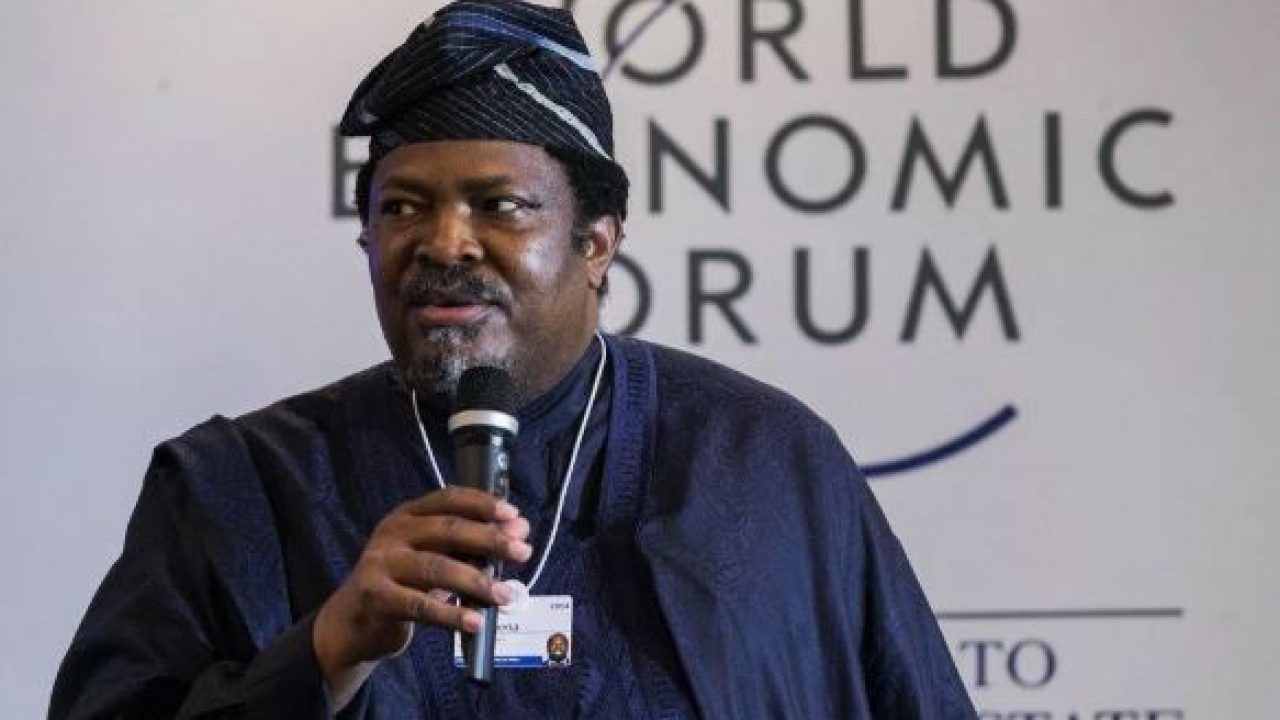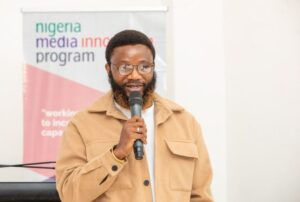To mark the 56th birthday of journalist and media career development specialist, Lekan Otufodunrin, a tweet chat was held on Media and Post COVID-19 realities.
The chat moderated by Executive Director of CEEHOPE, Ms Betty Abbah had Editor-In-Chief of Opera News, Bayo Olupohunda, General Manager, MEGA 89.1FM, Ejiro Umukoro and Otufodunrin as speakers.
Full text of the chat compiled by Adeyanju Uwala is reproduced below:
Moderator: Let me start with a question for the celebrant, @lotufodunrin; Journalists are among the frontline actors in the campaign against COVID-19, kindly highlight some of the major roles they have played in Nigeria since the outbreak.
Otufodunrin: Very true. We are and should be proud of ourselves and colleagues who are making lots of sacrifices to keep us all informed and aware of what the situation is.
Journalists have been on duty all through the lockdown and risking a lot including being exposed to getting infected and all kinds of psychological trauma.
They have been providing comprehensive coverage of all aspects of the pandemic and providing necessary insights on how people can cope. They have been helping to checkmate fake news and demystifying myths. They have been helping to galvanise support for the needy and vulnerable in our society and keeping government on its toes to rise up to the occasion.
Our information gathering and dissemination role is so crucial and complementary to the success of the role of others involved in helping to find solutions and checkmate the spread.
Moderator: WOW. Perhaps one can say besides health workers, the next most vulnerable may be journalists, who go round finding the extent of the damage and perhaps monitor the possibility of a cure. @lotufodunrin, would you say they are protected enough?
Otufodunrin: They can be better protected and supported by their managements.
Umukoro: From what I’ve observed so far, journalists are not protected enough in Nigeria as I have seen in some other countries. Use of boom mics to enable social distancing, and alternative tools for getting data in an open environment is lacking. Also in going into an environment where exposure to infected persons may be a dime-and-dozen like, some journalists in the North with COVID-19 index cases took to public protest for lack of treatment showed the need for more preemptive anticipation & protocol.
While on the job, journalists have been harassed, threatened and suffered brutality especially from police and by some government officials even after identifying themselves! This should not be the case. In this area, the value of journalist needs improvement.
Olupohunda: Safety should be a serious consideration for reporters and correspondents at the front-line of this pandemic. While journos must take their personal safety seriously, managers and media owners must also provide measures to keep their staff safe.
Many news organisations have ordered staff to work from home whenever possible in order to reduce the chance of them contracting the virus. For those in broadcast, there should be pick-ups. Provision of safety kits for the journey. Safety for journalists reporting this pandemic also includes an awareness of how the coverage affect their mental health. They must take their mental health seriously reach out for help when dealing with disturbing information and how coverage impacts on them.
READ ALSO: WAY OUT OF FINANCIAL CRISIS FOR NIGERIA MEDIA
Moderator: Let me come to you now @LadyEumukoro: Considering the important roles of journalists & the media in the campaign and looking at our realities, do you think they have an enabling environment for them to maximally perform their duties?
Umukoro: Staff welfare has come to encompass planning ahead for all scenarios. Time to go back to the drawing board to treat the essential service nature of Journalists to paying Hazard Allowance, Welfare as required in labour practice; and workplace restructuring.
Enabling environment requires that there’s also a shift in mindset: changing from work-life to a life-work Paradigm shift. Enabling environment also means: how safe is my workplace? What protocols have been put in the workplace to manage emergencies/lockdown? Enabling environment also means: do you have the tools, training & skills to execute?
In some cases, to manage the close quarters of working spaces, many staff were made redundant. So it begs the question, post-COVID-19, do we really need a market place to work?
Moderator: EXCELLENT. EXCELLENT, @LadyEumukoro, what if the media owners or managers decide to be lawless as many prone to around here? Are there channels where they can be reported for compromising their staff safety?
Umukoro: This is a 2-edge sword question. If companies don’t have reporting policies as the Nigeria labour laws give more power to the employer, it becomes a problem. Bodies like NUJ, NBC, BON, NAWOJ, RATTAWU, must understand that welfare is not only salaries.
Welfare includes the best human resource practices, safety and mental stability of staff, health benefits, hazard allowances, emergency funds. BON, NUJ, NBC, NAWOJ, RATTAWU seriously needs to go back on the drawing board and review the safety and value of journalists.
Proactively, we need journalists/broadcasters to begin to read the fine lines of their contracts. Know what you’re entitled to. During general meetings, must raise issues on areas that are lacking. Don’t gossip & complain. Other options: talk a walk. Value yourself.
Moderator: @BayoOlupohunda, you took some of the words out of my mouth. But, if some media manager and owners decide to be lawless and refuse to provide some of these things, what should the reporters do especially now that getting other jobs are not easy?
Olupohunda: Now this is where personal responsibility comes to play. However, media managers should care more about the welfare of journalist working in their stable at this time. It’s both a moral and contractual obligation.
Moderator: Let me come back to you, @lotufodunrin: Sir, like every other sector, the media has not been spared in disruption of its regular operations, what are the major losses media houses must have recorded so far?
Otufodunrin: Indeed, notwithstanding that we are in the frontline, our industry is one of the hardest hit. Patronage of the print, for example, has declined drastically due to the lockdown and restriction of movement. It’s more difficult to circulate the publications despite being allowed to move around.
Generally, the revenue from adverts which is the main source of media revenue has reduced as only a few companies are advertising. People are accessing broadcast and online content but there is no commensurate advertising to sustain the organisations for long.
COVID-19 has become an existential threat to the survival of the media as many media executives have disclosed and lots of cost-cutting measures have been announced. They include pay cut, forced leave, the sack of journalists and shut down.
Umukoro: Multiple revenue streams have been greatly affected. Outdoor activations and other social-crowd pulling events like cultural festivals, music events, audience extended programme greet and meet, paid for professional training programmes, etc., are most hit.
I would say this though, while big media owners are worst hit, individual journalists who have trained themselves in developing the right digital expertise and skills are being paid heavily this period for greater investigative report. Time to be exponential!
Paper doesn’t need to be hard copies anymore. The NY Times, Guardian UK, and other top newspapers have innovated their approaches online and in print too. Media organisations in Nigeria, often don’t challenge themselves enough.
Olupohunda: Traditional media have been experiencing a drop in advert revenue in Nigeria more than a decade due to slow adoption of digital media. What the pandemic has done is a death knell. The survival of media is tied to how quickly the world can beat this virus.
Moderator: EXISTENTIAL THREAT: It’s quite a scary situation, @lotufodunrin. Let me do a double-edged question: a response from both you and Taiwo Obe aka @araisokun who just joined: WHAT IS THE WAY OUT? How do affected journalist cope at this time?
Otufodunrin: Our problems have always been there based on the poor economy and digital disruptions, but has been complicated by COVID-19. There is a need for an urgent review of our operations.
We must admit the dire state we are and cut our losses as much as possible that will enable us to continue to remain on-air, online or the streets. There is a need for better deployment of staff and reviewed the production process that is digital-based.
There should be better communication of the true situation to staff for them to understand why the staff strength may no longer be realistic and the sacrifices that will be required by all. Frequency of publication and airtime may also need to be reviewed.
Obe: You see, I will rather not generalise about these things. I spoke with a 2 i/c in one organisation and the evidence I was presented showed that, indeed, their print products were in demand in some places; so they had to meet the increased demand.
“There cannot be digital journalism without reconfiguration of newsrooms to enhance workflows” – @JuanSenor
I just needed to state that it goes beyond “technical know-how” and there is also a mindset thing, in terms of newsgathering. I hope that editors would now see that their reporters can file stories from anywhere they are and don’t have to “come back to the office.”
Moderator: Dear @LadyEumukoro, now to this question: what are the main lessons media houses should learn from their operations during the lockdown in terms of being more efficient, more productive?
Umukoro:
- Treat your business as a business.
- Have enforced good financial practices &systems
- Train staff to develop multi-skills that attracts income streams
- HR Policies must be Staff-welfare driven.
- Innovate
- Collaborate
Those well run, obviously are doing some things right. I think being family business is not so much the issue as much as the quality, expertise, and knowledge experience of those running it. A badly run business is a titanic waiting to crash.
Olupohunda: I am not sure media houses will learn a lot of lessons from the impact of this pandemic given the structure of media ownership in Nigeria which is essentially family businesses.
Moderator: @BayoOlupohunda, let me come back to you again;
Why do you think it seems impossible for many media houses especially in Nigeria to absorb the impact of the pandemic even right from the first month?
Olupohunda: Already the media was already suffering revenue loss before the pandemic. The slow digital adoption also means dependence on newsprint. Media is also hugely supported by government patronage. Most of this has collapsed now. Even the government is struggling.
Umukoro:
- The poor financial practice is at the root of the problem why many got hit badly.
- Supplying Power 24/7 by a company is unsustainable in emergencies
- Untapped multiple income streams
- Not expanding into digital space.
Moderator: Over to you, @LadyEumukoro; broadcast stations have reportedly been asked not to pay licence fees for two months. What is your thought on this? Will this help in mitigating the impact of COVID-19 on the sector?
Umukoro: This is making laugh real hard! Really? Who is making the claim?
Evidently, the person doesn’t have a clue on how the broadcast licensing is done in Nigeria.
To answer your question: At our end, we haven’t gotten any notification to that effect from a recognised body.
Moderator: Dear @BayoOlupohunda, at the risk of repeating myself; Having worked for traditional media and in recent years top online platforms, what major difference have you noticed and what do you recommend for media houses generally to be more digital compliant?
Olupohunda: Nigeria media while playing local should think global in adopting technology that can drive an innovative newsroom while increasing both online & offline revenue. Media is business and it’s important traditional media adopt digital best practices to make it sustainable.
Playing local means telling our stories and adopting technologies that take our stories to the global audience. A media house will be sustainable when it tells and report the story that can drive the audience and ultimately lead to increase revenue. Content is still king.
Media managers, senior editors and the entire newsroom must always consider the big picture of sustainability when pitching ideas. The editorial must always be in sync with the marketing department to brainstorm on ideas that can generate revenue.
For editors, reporters, correspondents; it’s not just enough to report your story. You must also consider how you can raise the bottom line of your organisation by coming up with ideas that can support the sales team.
Moderator: And let me follow up quickly, @BayoOlupohunda: COVID-19 has brought about a lot of fake news and conspiracy theories. How can journalists effectively navigate the minefields of information out there & report only on facts?
Olupohunda: You are right, there is a lot of disinformation, hoaxes & fake news out there. But journalists must always question the source of these contents. Souring from credible sources and working with organisations like the @WHO and fact-checkers.
Journalists need to draw a tough balance between informing the public and deepening fear arising from fake news and conspiracy theory about this pandemic. It’s a responsibility to try to cut through the whole fog to get a clear picture. Journalists must use resources developed by Journalism Think Tanks. These resources cover content production & verification of facts about COVID-19. For example, the Thomson Foundation has developed facts verification resources with @firstdraftnews.
Moderator: As we coast home, let me ask our main celebrant, @lotufodunrin this salient question: What other sources of funds can be available for publishers at this time given the downturn courtesy of COVID-19 outbreak?
Otufodunrin: We definitely need new funding options. In some capital re-injection by media investors to reflate the sector. There are also some support grants coming up from funders but they need to meet various conditions.
There are organizations experimenting with becoming not for profits and some are asking for support from readers.
Umukoro: I agree with this. Financial transparency, commitment to using funds judiciously, ability to execute projects, respect for funding goals, quality supervision, treatment of partners, etc., does matter in collaboration and funding backups.
Moderator: Thank our wonderful panellists, Bayo Olupohunda (@BayoOlupohunda) & Ejiro Umukoro (@LadyEumukoro), for providing us profound insights into the issues under review. It’s being a very enlightening and refreshing experience. Thanks so very much. Thanks to everyone who dropped by.






